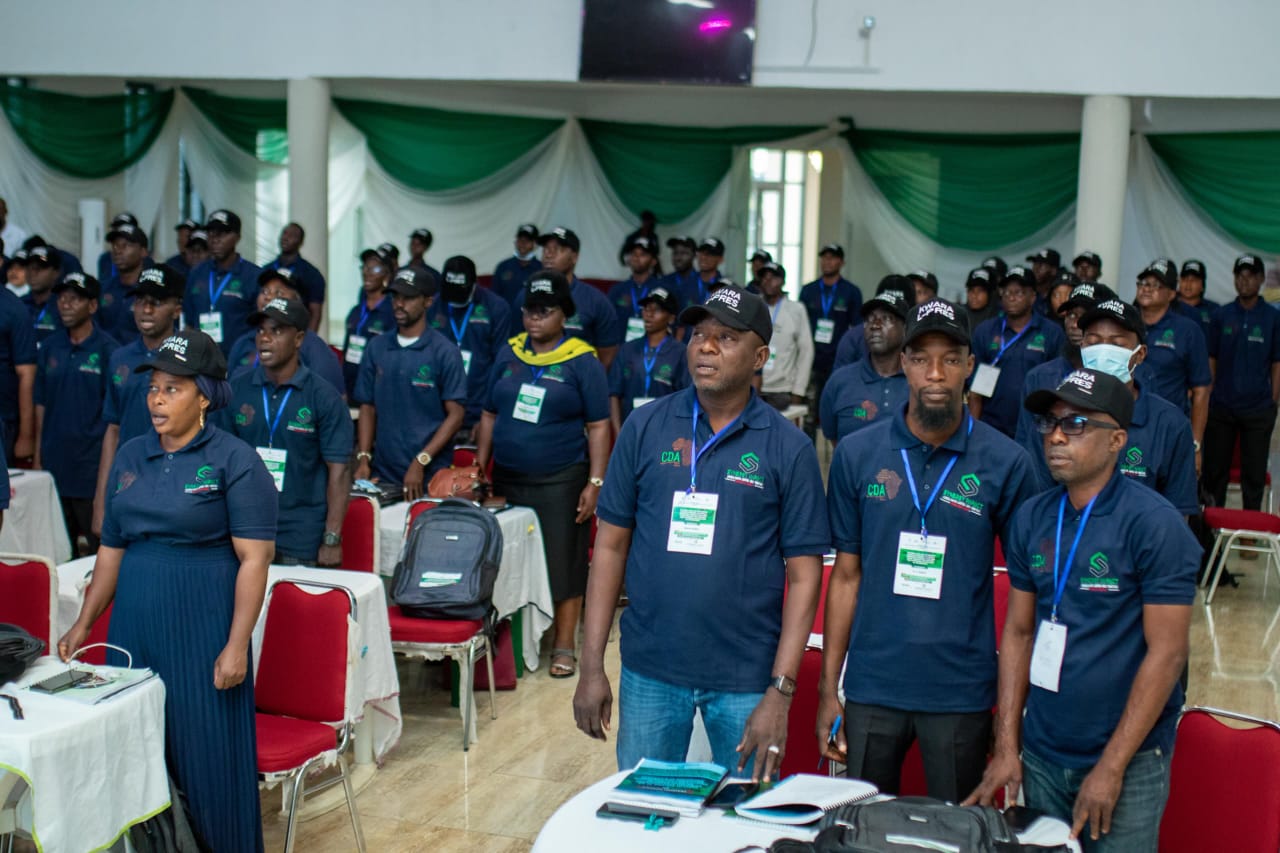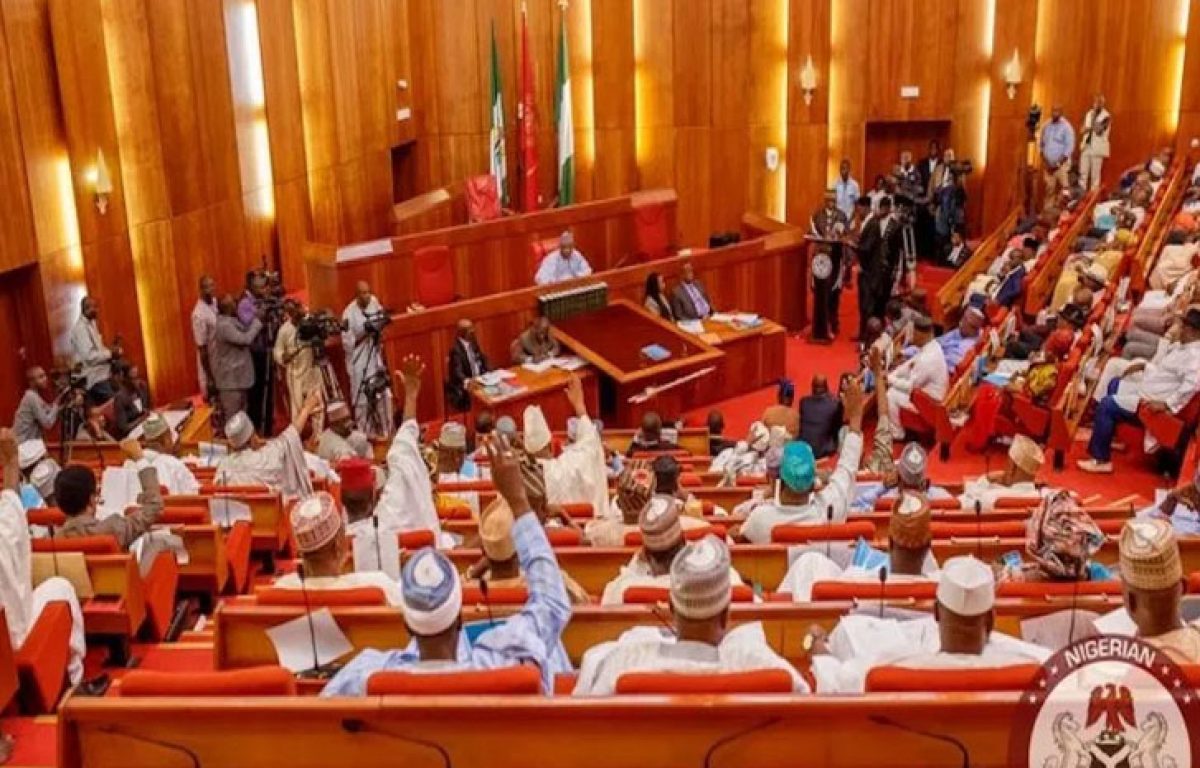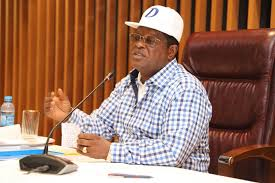Business
Kwara Gov pledges more investments in livestock sector

- as Kwara L-PRES trains additional 100 extension agents/farmers
Stephen Olufemi Oni, Ilorin
Kwara State Governor AbdulRahman AbdulRazaq has reiterated the commitment of his administration to investing in vital infrastructure and equipment in the livestock sector for the betterment of the citizenry.
Governor AbdulRazaq stated this at the opening of the 3rd batch training workshop for additional 100 extension agents and farmers on small ruminant production, and crop residue processing for improved utilisation by ruminants.
The occasion was also used to flag-off the distribution of crop residue crushers and pelleting machines to livestock farmers.
The event, organised by the Livestock Productivity and Resilience Support Project (L-PRES) Coordination Office, was packaged by Synergy Impact Consultant Limited, and Centre for Dryland Agriculture, Kano.
The Governor, who was represented by the State Commissioner for Agriculture and Rural Development, Mrs. Oloruntoyosi Thomas, said the livestock sector faces numerous challenges, including climate change, disease outbreak, and inadequate access to resources and markets.
He stated that the capacity building is to support in overcoming the various livestock management challenges with a view to realising the potential of the sector in the State.
The aim of his administration, AbdulRazaq said, is to ensure that farmers are well equipped to meet the challenges hindering their progress by increasing and enhancing their livestock management capacities.
“Our livestock sector must evolve to meet the demands of our growing population while being mindful of environmental sustainability. By implementing best practices in animal husbandry, we can ensure healthier livestock, improved yields, and reduced environmental impact.
“This is why the state government through L-PRES Project designed a comprehensive initiative aimed at enhancing our livestock capacity through training, education, and sustainable practices to empower our farmers with the skills and knowledge they need to thrive in a rapidly changing agricultural landscape”, the Governor said.
He was upbeat that the training would enhance livestock management knowledge in the State, increase the efficiency and effectiveness of the extension agents as well as improve the livelihoods and economy of the populace.
Flagging off the crop residue processing equipment, Governor AbdulRazaq said the initiative was another significant step towards realising the full potential of the livestock sector in the State.
In his remarks, the Special Adviser to the Governor on Special Duties, Alhaji AbdulRasaq Jiddah, tasked the participants to take the opportunities the training offers and utilise it to boost the economy of the State and the country at large.
In his presentation, the lead facilitator, Dr. Akeem Ajeigbe, while applauding the governor for his support towards the success of the training, charged the trainees to reciprocate the good gesture of the government by utilising the knowledge acquired from the training to solve the challenges in the livestock sector of the state.
In his welcome address, the State Project Coordinator, Mr. Olusoji Oyawoye had earlier commended the State Governor, the World Bank, and the National L-PRES Office for the enabling environment and the technical support extended to the project in the state.
Mr. Oyawoye stated that with the quality of knowledge derived from the training and the enabling environment created by the government, the participants can now become job creators.
Speaking on behalf of other participants, Mrs. Abdulkareem Shukurat and Mr. Akani Tajudeen thanked the governor for giving them the opportunity to be self-reliant and job creators.
Business
Senate Committee Commends Tinubu on Launch of National Halal Economy Strategy to Tap $7.7trn Global Market*

The Senate Committee on Finance has commended President Bola Ahmed Tinubu for launching Nigeria’s National Halal Economy Strategy, describing it as a bold and strategic move to position the country within the lucrative global halal market, estimated at $7.7 trillion.
In a statement signed by its Chairman, the committee praised the initiative as timely and aligned with international best practices. Several countries—including the United Kingdom, Canada, Australia, Malaysia, Indonesia, Saudi Arabia, the United Arab Emirates, Turkey, Brazil, Thailand, and Singapore—have successfully used halal frameworks to boost manufacturing, agricultural exports, financial markets, and foreign investment.
The committee highlighted Nigeria’s strong advantages for success in this space, including its vast agricultural resources, large domestic market, youthful population, growing manufacturing sector, and expanding services industry.
It noted that the strategy fits seamlessly into the Tinubu administration’s broader economic reforms, such as boosting non-oil revenue, diversifying exports, creating jobs, supporting small and medium enterprises (SMEs), and increasing foreign exchange earnings.
President Tinubu, represented by Vice President Kashim Shettima, officially unveiled the strategy on Thursday, February 6, 2026, at the Presidential Villa in Abuja.
The framework, developed in collaboration with Saudi Arabia’s Halal Products Development Company (HPDC) following a bilateral agreement signed in February 2025 at the Makkah Halal Forum, aims to enhance quality standards, certification processes, and competitiveness across sectors like food, pharmaceuticals, cosmetics, tourism, and ethical finance.
The committee described the strategy as inclusive, market-driven, and globally oriented, while fully respecting Nigeria’s diverse and pluralistic society.
It is projected to contribute significantly to the economy, with estimates suggesting it could add around $1.5 billion to Nigeria’s GDP by 2027 and unlock billions more in domestic value over the coming decade through expanded exports and investment.
The Senate Committee on Finance pledged its full legislative support, oversight, and cooperation to ensure smooth implementation, regulatory clarity, and long-term fiscal sustainability in the national interest.
“This decisive step reinforces Nigeria’s readiness to adopt proven international models, unlock new economic frontiers, and establish itself as a competitive player in the evolving global economy,” the statement concluded.
Business
Ex-Naval Chief Named in ₦100m Property Transaction Dispute
A property transaction dispute has emerged involving Zoe New Dawn Nigeria Limited and a former Chief of Naval Staff, following claims by the company’s chairman, Engr. Dr. Stephen Achema Akpa, that a ₦100 million payment made for land was not followed by a transfer of ownership.

According to Akpa, the payment was made in connection with a land transaction reportedly facilitated by the former naval chief. He alleged that despite documented payments, the land in question was neither transferred to the company nor was the money refunded.
Akpa said Zoe New Dawn Nigeria Limited possesses transaction records and related documents which, he claims, support its position in the dispute. He added that the company has initiated steps to seek redress through appropriate legal channels.
The matter has drawn attention due to the profile of the parties involved, particularly against the backdrop of recurring disputes linked to land ownership and property transactions in Nigeria’s real estate sector.
Industry observers note that unresolved land transactions remain a common source of litigation, often arising from disagreements over title documentation, intermediaries, and contractual obligations.
Zoe New Dawn Nigeria Limited stated that it intends to pursue the matter through lawful means to determine liability and recover any funds deemed outstanding.
As of press time, no official response had been issued by the former Chief of Naval Staff regarding the allegations. The dispute has not yet been confirmed as the subject of any court proceedings.
Business
Umahi Inspects Lekki Corridor’s 7th Axial Road Project, Expresses Confidence in CHEC

Minister of Works Senator Dave Umahi over the weekend inspected the progress of the 7th Axial Road project in the Lekki Corridor of Lagos.
The project, located behind the Dangote Refinery, is a crucial cargo handling route for the Lekki Deepwater Port and connects the Lekki Corridor with the Sagamu route.
The Minister expressed confidence in China Harbour Engineering Company Limited (CHEC), the project’s contractor, citing its successful delivery of the Lekki Deepwater Port and high-quality progress on the Makurdi-Enugu road reconstruction and expansion project. Umahi instructed that the roadbed filling work for Project LOT1 be completed by the end of April and directed the project team to accelerate resource input and tangible works to meet the deadline.
The 7th Axial Highway is expected to synergize with key infrastructure projects like the Coastal Road, Dangote Road, and Lekki Port, creating a comprehensive transportation hub model and boosting Nigeria’s port economy and industrial corridor. Umahi emphasized the need for environmental protection agencies to ensure efficient construction and steady progress while maintaining ecological safety.
A representative of CHEC who spoke during the inspection stated that the company would maintain a high level of resource input, implement the Minister’s directives, and coordinate safety, quality, and environmental protection to ensure the project’s timely and high-quality completion in other to unluck its port relief and regional economic benefits.
-

 Uncategorized5 years ago
Uncategorized5 years agoFG, states urged to harness flooding for ranching, others with technology – Agbaje
-

 Headlines10 years ago
Headlines10 years agoBreaking: EFCC seals Borno House of Assembly, as Hon members take to their heels
-

 News12 years ago
News12 years agoNigeria Security Operatives Stage Manhunt For Homosexual Perpetrator
-

 News9 years ago
News9 years agoHow 21-year-old Girl fled community over accusation of lesbianism
-

 News10 years ago
News10 years agoYobe Gov Moves Against Deputy
-

 Opinion7 years ago
Opinion7 years ago7 signs she has friend zoned you
-
Technology4 years ago
Online job placement company headhunts women
-

 Headlines10 years ago
Headlines10 years agoBorno Dep Gov Abducts Another Church Leader





